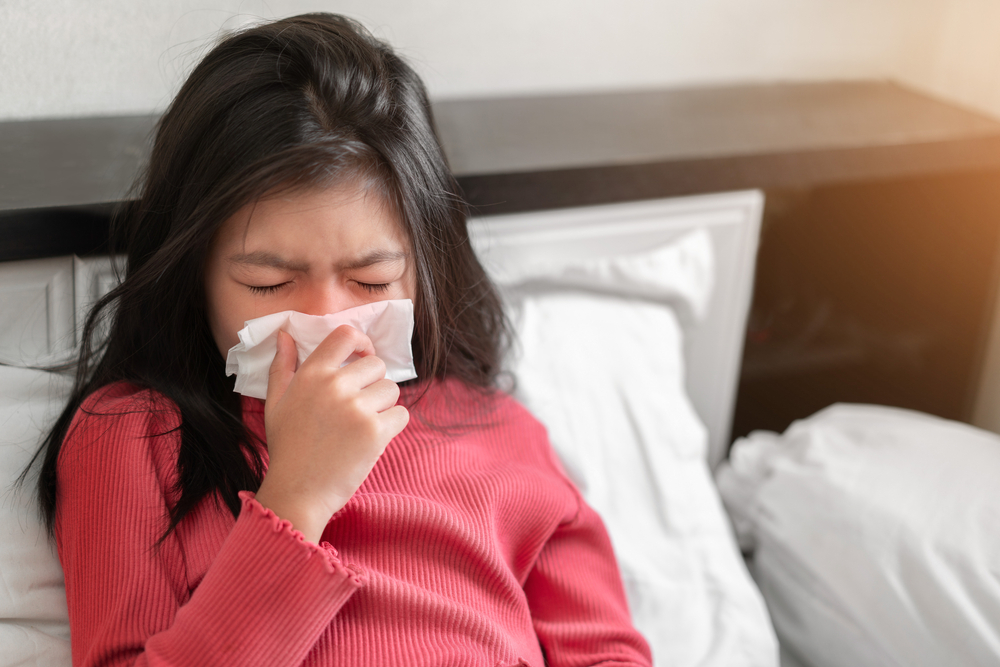Coughs, colds and bronchiolitis
- 0-1 Years
- 1-5 Years
- 5-11 Years
- 11-19 Years
- SEND
- Parents and Carers
- Common illnesses
Babies and children often get a lot of coughs and colds - around eight a year! As they get older and their immune system gets stronger, the number of coughs and colds will get less.
Explore the topics on this page:
More about coughs and colds
Colds and most coughs are caused by a virus. Most colds last for 5 to 7 days, but the cough can hang around for longer.
Coughs are often caused by secretions (snot) dripping down the back of the throat, especially when they are not old enough to blow their nose well. You can sometimes hear this as a ‘snotty rattling’ noise in small children’s throats.
It's hard to see your child feeling poorly and colds can make them feel really miserable. Unfortunately, there is currently no treatment for a cold. Antibiotics don't work on viruses like colds, and your child will not need to see a doctor.
You can help stop the germs spreading by making sure everyone is washing their hands well. Have lots of tissues and make sure dirty ones go straight in the bin.
Helpful videos
Bronchiolitis
If your baby or child has a cold or cough that goes on for a while and their breathing seems noisier or faster than usual, your GP may tell you they have bronchiolitis. This is caused by a viral infection. The most common infection that causes this is RSV (Respiratory Syncytial Virus), so your doctor may call it RSV instead.
It is easy to catch this virus, so many children (particularly the under 2's) might catch it every year or have it more than once in a year. This is most likely to happen in the winter months.
There is no specific treatment for RSV and most children will start to get better after 3 or 4 days. They may have a cough for some time. You can often care for your child at home while they have this viral illness, but you will need to get more medical advice if it does not get better or gets worse.
If your child has symptoms of a cough or cold, is breathing more quickly or noisily and having difficulty feeding or you are worried, contact your GP. They will be able to advise and confirm if your child has bronchiolitis.

How to help make your child feel better
Whilst a cold has to run its course, there are things you can do to help your child feel better:
- Take time for cuddles. You might find your child wants you extra close for comfort
- Make sure that your child drinks plenty of fluids to keep hydrated. (Don’t worry if they don’t feel very hungry for a few days)
- Warm baths and warm drinks can help stuffy noses and be relaxing before bed
- Give children’s paracetamol or ibuprofen. You can talk to your pharmacist about this
- Try saline nose drops or sprays to help your child breathe more easily – ask your pharmacist for details
Giving your child medicine
Coughs that can come along with a cold can cause sleepless nights for all. You can try the following to make your child more comfortable at night time:
- If your child is older than one - you can try an extra pillow to prop them up
- Have a drink close by
- Use Vaseline on sore noses and lips
- If your child has a pre-existing condition, like asthma, keep giving any prescribed medication. If you are worried that their symptoms are getting worse call 111 for advice
When to get further advice
Call 111 for advice if your child has a:
- High temperature (more than 38 degrees) that has not got better by giving paracetamol or ibuprofen as directed
- They are not drinking fluids and are not having wees/wet nappies
- A low temperature (less than 35.5) and they seem quiet and/or unusually sleepy
- Are being sick after all feeds or drinks
- You have a strong sense that your child is too poorly for it to be just a cough or cold
Most children bounce back from coughs and colds quite quickly. You know your child best, so if you are feeling worried than ask for advice from your pharmacy, 111 or GP.
Visit your pharmacy first
Most pharmacies can help you with these seven common conditions without needing a GP appointment:
pharmacies can help you with these seven common conditions without needing a GP appointment:
- Sinusitis (adults and children aged 12 years and over)
- Sore throat (adults and children aged five years and over)
- Earache (children and young adults aged 1 to 17 years)
- Infected insect bite (adults and children aged 1 year and over)
- Impetigo (adults and children aged 1 year and over)
- Shingles (adults aged 18 years and over)
- Urinary tract infection (women aged 16 to 64 years)
Ask your pharmacy for more information about this free* NHS service.
* NHS prescription charge rules apply where a medicine is supplied.
Last reviewed: 1 November, 2023
